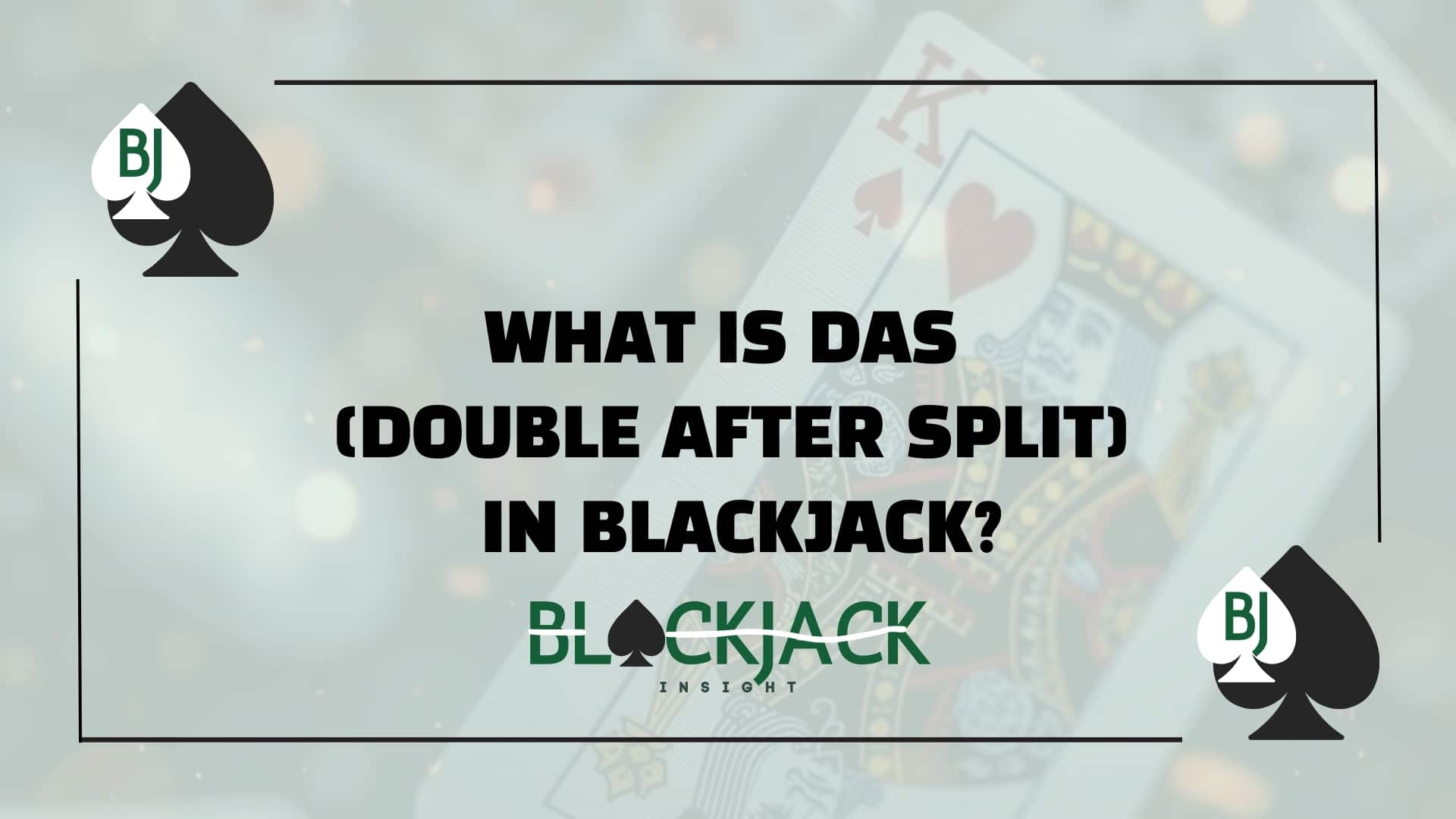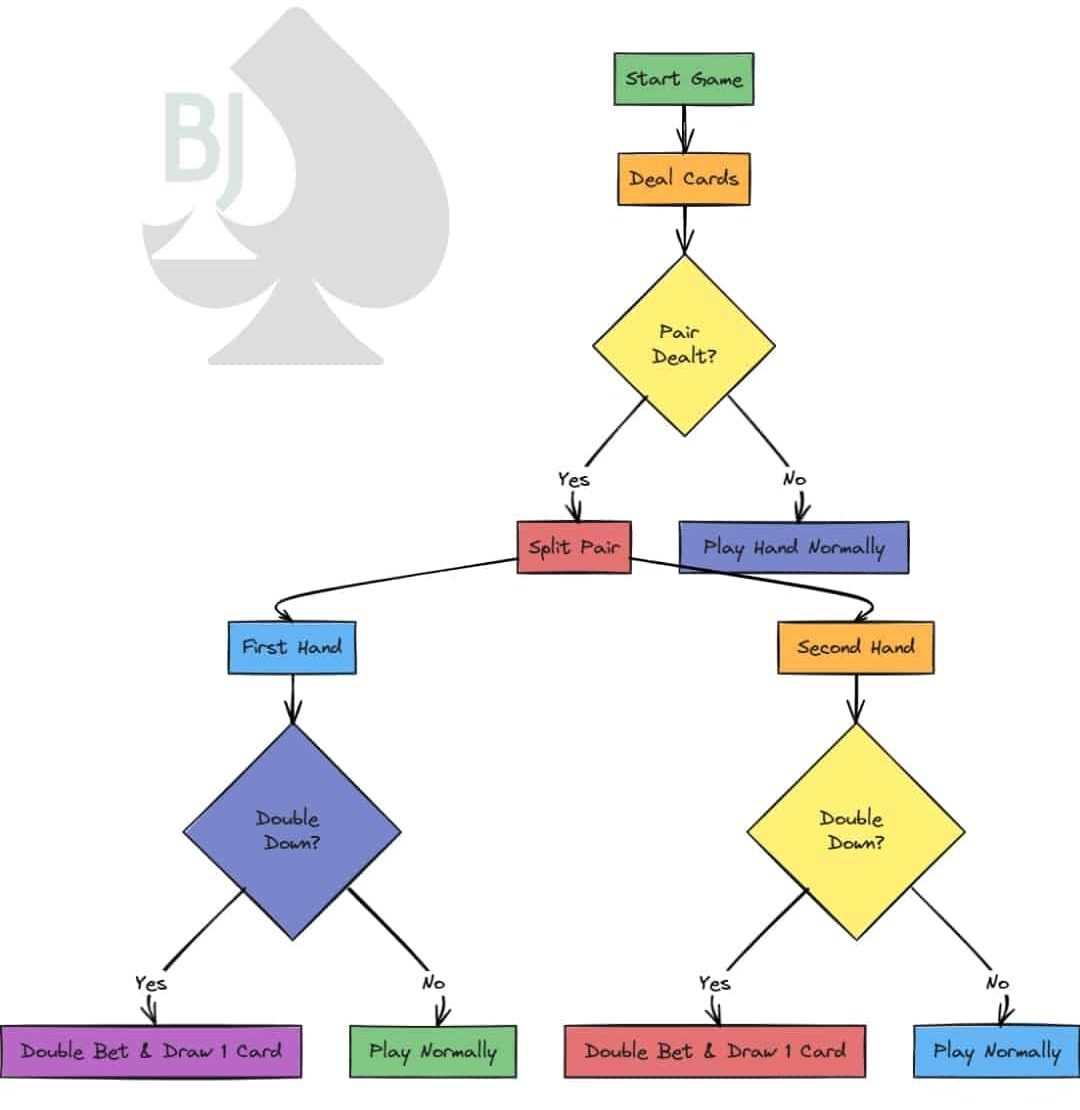What Is DAS (Double After Split) in Blackjack?
Table Of Content
DAS (Double After Split) is a crucial blackjack rule that allows players to double down on hands formed after splitting, creating opportunities for bigger wins in the right situations. This rule reduces the house edge slightly while offering more strategic flexibility, especially when splitting pairs like 8s or 9s.
Blackjack is a game full of nuances, and one of its most pivotal yet often overlooked rules is DAS—an acronym for Double After Split. While it might sound like a minor adjustment to the standard rules, DAS can dramatically alter your blackjack experience and open up new strategies that wouldn’t be possible otherwise. Below, we’ll explore what is DAS in blackjack, how it works, why it matters, and even add a couple of personal anecdotes to show how it plays out in real games.
What Does DAS Mean in Blackjack?
A rule that gives you the option to double down on any hand formed after splitting a pair. Here’s how it works:
Let’s say you’re dealt a pair—two 8s, for example. You decide to split them, turning one hand into two. If DAS is allowed, you can now double down on each of those hands after the split. That means you can place an additional bet on each hand and receive just one more card—the same kind of move you’d normally only get to do after the initial deal.
If the table doesn’t allow DAS (commonly called NDAS or No Double After Split), then once you split your cards, your only option is to keep hitting or standing. No doubling down allowed.
Why Does DAS Matter?
Here’s the thing—DAS might seem like a small tweak in the rules, but it can seriously shift the odds in your favor.
Let me paint you a quick picture.
You’re playing at a DAS table and get dealt two 5s. Great hand to double, right? But wait—you’re feeling spicy, so you split. Now you have two hands starting with 5. The dealer’s upcard is a 6, which is a weak card. Thanks to DAS, you double down on both hands. You get a 6 and a 7. That’s 11 and 12 against the dealer’s 6.
If the dealer busts (which happens a lot when they start with a 6), you just won two doubled bets instead of one. See how DAS opens up strategic options?
At an NDAS table, you wouldn’t be allowed to double after splitting those 5s. You’d have to just hit. Less control, fewer profits.
DAS vs. NDAS: What’s the Difference in Real Terms?
To the average player, DAS might not seem like a huge deal. But when you look at basic strategy, you’ll see that several optimal plays depend on having DAS available.
Let’s compare real-world plays at a glance:
| Scenario | DAS Table | NDAS Table |
| Pair of 2s vs Dealer 4 | Split + Double | Just Split |
| Pair of 3s vs Dealer 2 | Split + Double | Just Split |
| Pair of 6s vs Dealer 4 | Split + Double | Just Split |
These differences might not seem like much, but they add up—especially over the long run.
I once spent an entire Vegas weekend bouncing between tables, and I kid you not, my win rate was noticeably higher at DAS tables. It wasn’t magic—it was just basic strategy finally working at full potential.
What Are the Advantages of DAS?
Here are 3 important advantages of DAS.
Flexibility
DAS gives you more ways to react to favorable situations after splitting. If you form a total of 9, 10, or 11 on a split hand, doubling down can yield higher returns.
Better Basic Strategy Options
Because of the added choice, basic strategy charts for DAS tables differ from NDAS charts. These charts account for moments when a split hand can be further leveraged by doubling.
Reducing the House Edge
DAS can cut the house advantage by about 0.1%—a seemingly small number that adds up significantly the more you play. If you’re dedicated to improving your odds, seeking out DAS tables is a wise move.
A Quick Tip From Personal Experience
One night at a downtown Reno table, I was dealt two 3s against a dealer’s 4. It was a DAS table, and I split. Got another 3. Split again. Another 3. Four hands. All splits. I doubled down on two of them. The dealer busted, and I walked away with a stack of black chips.
Now, I’m not saying DAS guarantees a win. It doesn’t. But it opens doors that you absolutely want open.
So, what is DAS in blackjack? It’s the freedom to double down after you split—an advantage you definitely want on your side.
If you’re playing casually and looking to get better, learning when to use DAS can raise your game. And if you’re grinding or playing more seriously, tables that allow DAS should be your go-to.
Whether you’re online or in-person, always take a second to check the rules. A game with DAS is a friendlier game for your wallet. And in blackjack, every edge counts.
FAQs
1. Why is DAS beneficial for the player?
DAS lets you capitalize on good situations. For example, if you split a pair of eights and then draw a three, you can double down on your total of 11. This significantly boosts potential winnings when you have a favorable hand.
2. Are all casinos required to offer DAS?
No. DAS is an optional rule and can vary by casino or by blackjack variant. Some tables allow it, while others prohibit doubling down on split hands. Always check the table rules to confirm whether DAS is in play before you start.
3. How does basic strategy change with DAS?
The basic strategy for DAS will recommend more splits, especially if you can double down when you land on totals like 9, 10, or 11 post-split. If a table doesn’t allow DAS, the recommended splitting strategy can be more conservative.
4. Are there any downsides to DAS from a player’s perspective?
Not really. DAS generally provides players with an additional strategic option. The only “downside” might be higher betting variance—you may end up betting more, and if you lose a doubled hand, it can impact your bankroll more severely. However, in terms of pure game odds, DAS offers an advantage.




